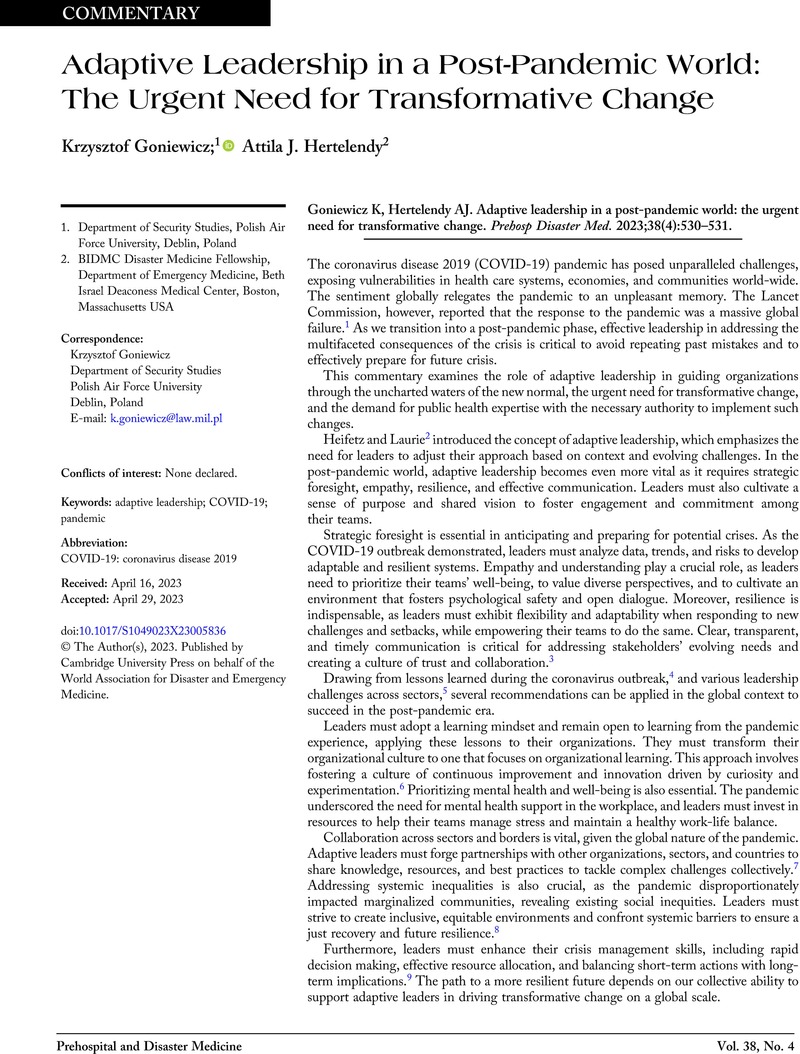Crossref Citations
This article has been cited by the following publications. This list is generated based on data provided by Crossref.
Goniewicz, Mariusz
Khorram-Manesh, Amir
Włoszczak-Szubzda, Anna
Lasota, Dorota
Al-Wathinani, Ahmed M
and
Goniewicz, Krzysztof
2023.
Influence of experience, tenure, and organisational preparedness on nurses' readiness in responding to disasters: An exploration during the COVID-19 pandemic.
Journal of Global Health,
Vol. 13,
Issue. ,
Goniewicz, Mariusz
Włoszczak-Szubzda, Anna
Al-Wathinani, Ahmed M.
and
Goniewicz, Krzysztof
2023.
Resilience in Emergency Medicine during COVID-19: Evaluating Staff Expectations and Preparedness.
Journal of Personalized Medicine,
Vol. 13,
Issue. 11,
p.
1545.
Alburaidi, Abdulhakim S.
Al-Wathinani, Ahmed M.
Aljuaid, Mohammed M.
Almuhaidly, Abdullah S.
and
Goniewicz, Krzysztof
2023.
Sustainable Resilience in Healthcare Delivery: A Comparative Study on Safety Awareness in Hospital-Based and Pre-Hospital EMS in Times of Crisis.
Sustainability,
Vol. 15,
Issue. 15,
p.
11593.
Al-Wathinani, Ahmed M.
Barten, Dennis G.
Alsahli, Hind
Alhamid, Anfal
Alghamdi, Waad
Alqahtani, Wadha
Alghamdi, Raghad
Aljuaid, Mohammad
Albaqami, Nawaf A.
and
Goniewicz, Krzysztof
2023.
The Right to Refuse: Understanding Healthcare Providers’ Perspectives on Patient Autonomy in Emergency Care.
Healthcare,
Vol. 11,
Issue. 12,
p.
1756.




